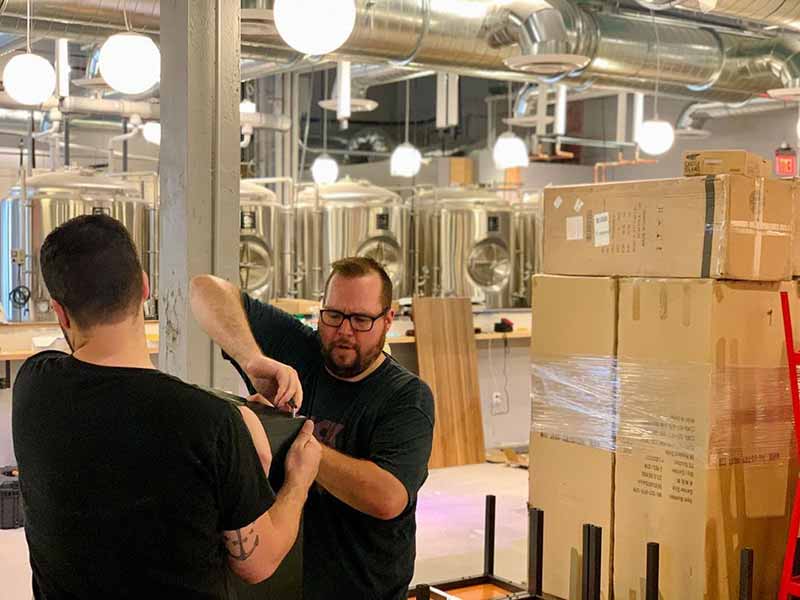
Whether you want to start a new brewery, a new location with a small pilot brewing system, or upgrade your older system for something newer or bigger, buying a brew kettle can take time and cause significant frustration.
What will fit in the space you have? How reputable is the manufacturer? Can I produce the amount of beer I need now and in the future? How much is it going to cost? How soon can I pay this equipment off?
All you want to do is brew some good beer and share it with your customers, but your head is spinning with all the research into this new investment. We guided you through the essentials you need to buy a canning line, and we will do the same here.
We talked with BrewBilt Manufacturing, along with breweries Fait La Force Brewing and Checkerspot Brewing, to get the skinny on what makes a good brew kettle, the first steps to buying one, top considerations to keep in mind, and that dreaded cost question.
(Above photography courtesy of Castle Island Brewing Co.)
Affordable, Industry-Leading Brewery Software
What Makes for a Quality Brew Kettle?
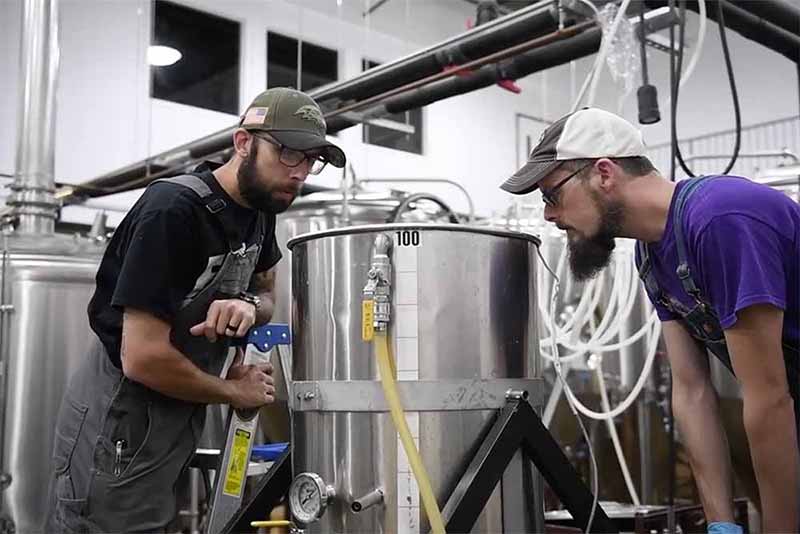
Photography courtesy of Checkerspot Brewing
It’s a combination of good materials, who makes them, and assurance a manufacturer will cover the equipment if something goes awry.
“It needs to be made from 304-grade stainless steel, designed by someone who knows about brew kettles and the beer brewing process, and fabricated by a quality craftsman,” BrewBilt President Jef Lewis says of what makes for a quality brew kettle. “It also should have a good warranty.”
Checkerspot Founder and Brewer Judy Neff says the most important thing for her is ensuring the kettle has good welds. Making sure that happens starts at the source.
“Make sure you get [it] from a reputable company where the design makes sense for what [styles of beer] you’re trying to brew,” says Neff, who operates a 15bbl system. “Communicate that with the manufacturer—depending on what [beers] you make, you’ll want a different system.”
Fait La Force Founder and Brewer Zachary Sowada notes that he has a small 5bbl brewery; for him, it all comes down to the almighty dollar.
“Whatever you can afford will dictate a lot of this,” he says, adding some questions you might ask yourself: ’What do I spend my money towards?’ or ‘What do I want that isn’t worth the cost?’”
First Steps Breweries Should Take Before Buying a Brew Kettle
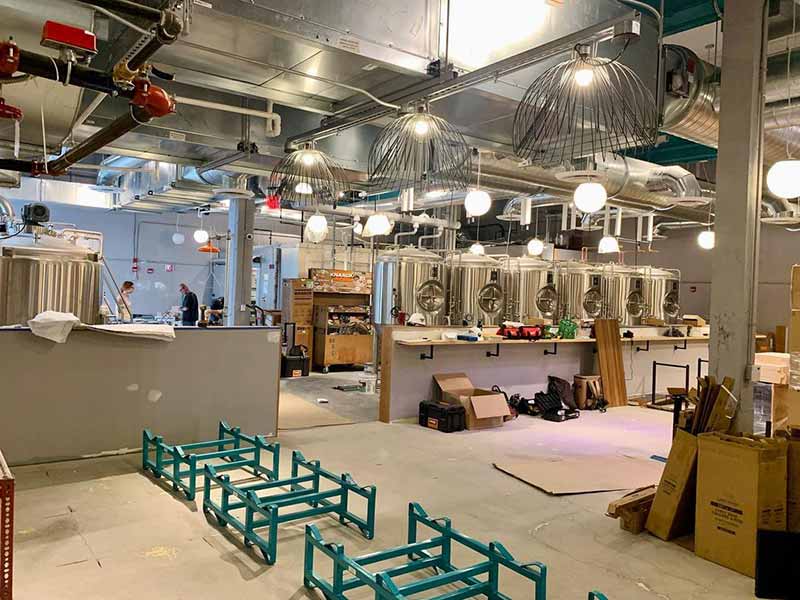
Photography courtesy of Castle Island Brewing Co.
Neff says it’s a tightrope trying to fit in many factors, all bundled around what type of beer you plan to optimize.
“It’s a balance of design, price, quality, and what you can make happen,” she says.
Beyond money, Sowada says, like Neff, it depends on what type of beer you want to specialize in to hone in on the right system.
“Are you going to focus more on lagers and hoppy beers or stouts and barleywines?” Sowada says. “If it’s the latter, you’ll need an oversized shallow mash tun; hoppy stuff, you want to make sure you have the ability to easily cool down the wort in the whirlpool—that could be the type of heating your system is on, electric, steam, or direct fire.”
Sowada adds, “There are other things to look for, but the style of beer you’re making … a lot of [your decision-making] depends on your focus. If it’s middle-of-the-road, choose [a system] you can make what you want without sacrificing.”
Lewis says there is much to consider in your building before buying equipment.
“Be aware of what utilities your building has to accommodate your brew system—electrical, water, and gas,” he says. “Also, can the floor of your brewery handle the heavy load of a brew kettle full of beer? And can you cut holes in the roof of your building for flue vents and gas venting?”
Top Considerations for Breweries Looking to Buy a Brew Kettle
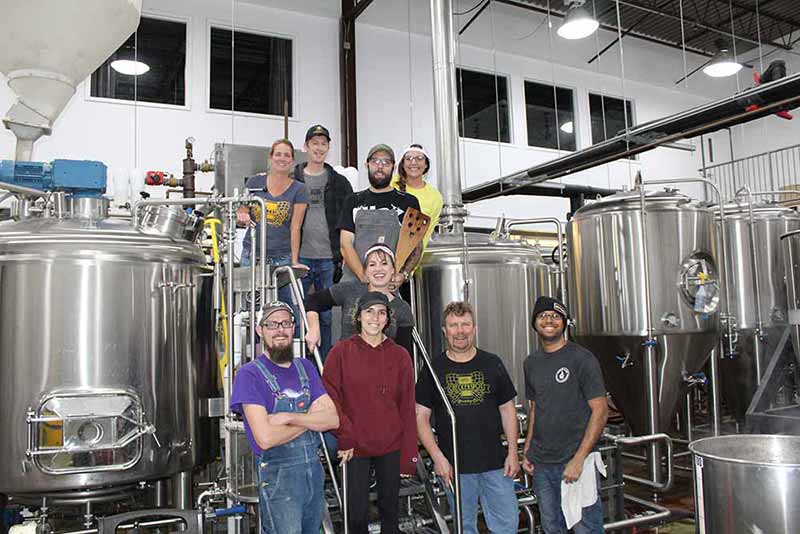
Photography courtesy of Checkerspot Brewing
Neff says Checkerspot was fortunate they found a new manufacturing company in Craft Kettle when they searched for their first system.
“It was both quality and a good price. We got really lucky with that,” she remembers. “They were newer, but they hired all the right people who were long-term brewers and worked for equipment manufacturers, so they had a strong team; I was confident the equipment would be designed properly.”
Neff says knowing all that information was the game-changer for her, and her instincts were right, as it turns out.
“It was a good piece of equipment and a quality product,” she says.
Sowada, above all the factors, leans towards customer service.
“Overall, whoever you’re working with, make sure their customer service is recommended or you’ve heard good things from other brewers,” he says.
Lewis spouted off a laundry list of things to consider when looking into what type of brew kettle to purchase.
He says, “You need to consider size, what heating source you’re going to use—steam heat, indirect gas fire, direct gas fire, or electric—the height-to-width ratio, whether you have a whirlpool inlet, F14e vent size, condensation runoff, trub management, dump size, your CIP, and whether you’ll go with a flat or conical bottom.”
How Much Will a Brew Kettle Cost Your Brewery?
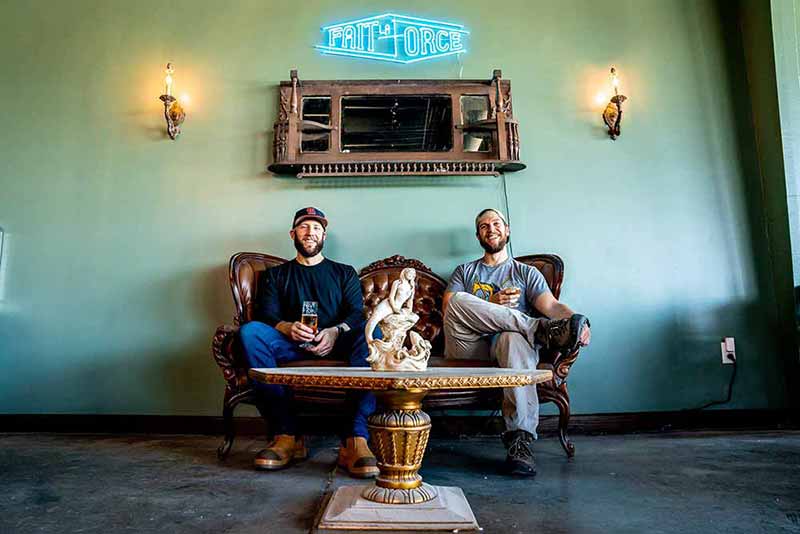
Photography courtesy of Fait La Force Brewing
This all depends on several factors, including whether it’s new or used, your size system, the manufacturer, and other variables.
Neff says their Craft Kettle was a good deal based on the company being new in the market over a half-decade ago. The brewery just moved into a new space and upgraded from a two-vessel system from Craft Kettle to a used four-vessel Newlands system.
“Definitely ask the manufacturer,” she says, adding that if they had gone with a new system, they would have purchased another Craft Kettle system.
Neff cautions, “If you buy cheap, you won’t have the best quality equipment. You get what you pay for.”
Sowada said in the current times, equipment prices have “skyrocketed.” Fait La Force bought its ABE system in 2018, pre-COVID, and spent $38,000 for a mash tun, boil kettle, heat exchanger, and control tree.
He advises you to get as many quotes as possible to figure out which company to use.
“Go through all the information, find the important thing, and explain why you want that equipment,” Sowada says.
Looking back on his purchase, Sowada says he has only one regret.
“I don’t have temperature control for my mas htun,” he says.
Lewis ballparked prices for a brew kettle, explaining how the price varies based on size and heating source.
“For a gas-fired kettle ranging from five to twenty barrels, it will cost anywhere from $14,000 to $25,000,” he says. “A steam-heated kettle from five to twenty barrels will run you between $10,000 and $30,000.”
But the kettle is just the tip of the iceberg, Lewis notes. In addition to the kettle, your brewhouse is likely going to need a mash tun, brew deck, control panel, transfer pumps, hot liquor tank, grant tank, sanitary piping, water manifold, electronics, temperature probes, flow meters, heat exchangers, and several other important options, he says.
One Last Tip When Buying a Brew Kettle
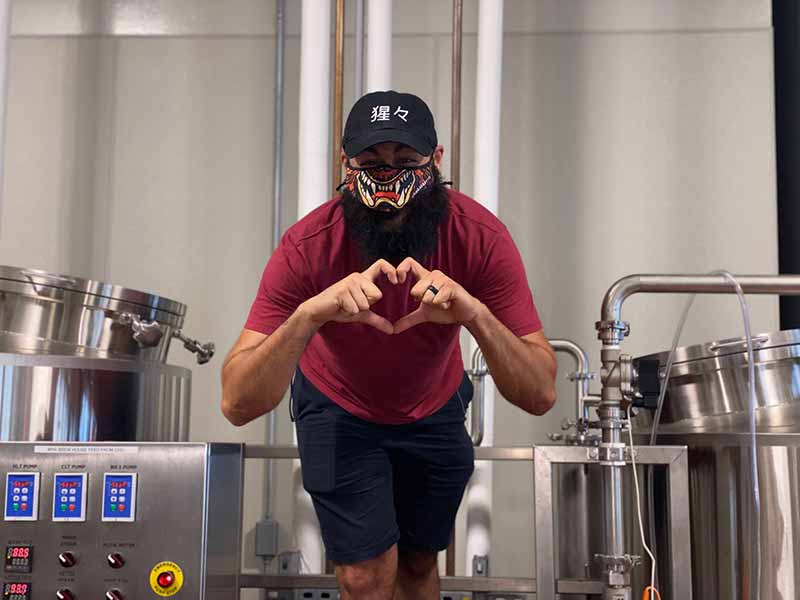
Photography courtesy of Shojo Beer Co.
Be forward-thinking, Neff says.
“The biggest mistake [most breweries make] is they buy equipment undersized, and very quickly, they have to brew two to three times a day to keep up with demand,” Neff says.
Despite the savings on the smaller equipment, you end up paying for it in the long haul.
“The cost of the equipment is different, but you gotta do a bunch of other stuff,” she says. “If you brew all the time, every day, you’re going to burn out and kill yourself over saving a couple of bucks and then go to the bigger equipment down the road anyway.”
Lewis thinks along the same lines as Neff.
“It’s important to determine the size [of system] that will be needed to accommodate the amount of beer production needed to carry the business with room to grow,” he says.
Sowada says budget, customer service, and size are three critical factors when buying a brew kettle. But he reiterates the importance of the company where you buy.
“I know some people who have had issues getting a hold of people after buying things,” he says. “Also, breweries I’ve talked with have said equipment made overseas might be cheaper but can be hard to fix.”
Sowada says that ABE was by far the most budget-friendly company he found and is reliable when he needs them the most.
“Having that ability to talk with someone is crucial,” he says.



